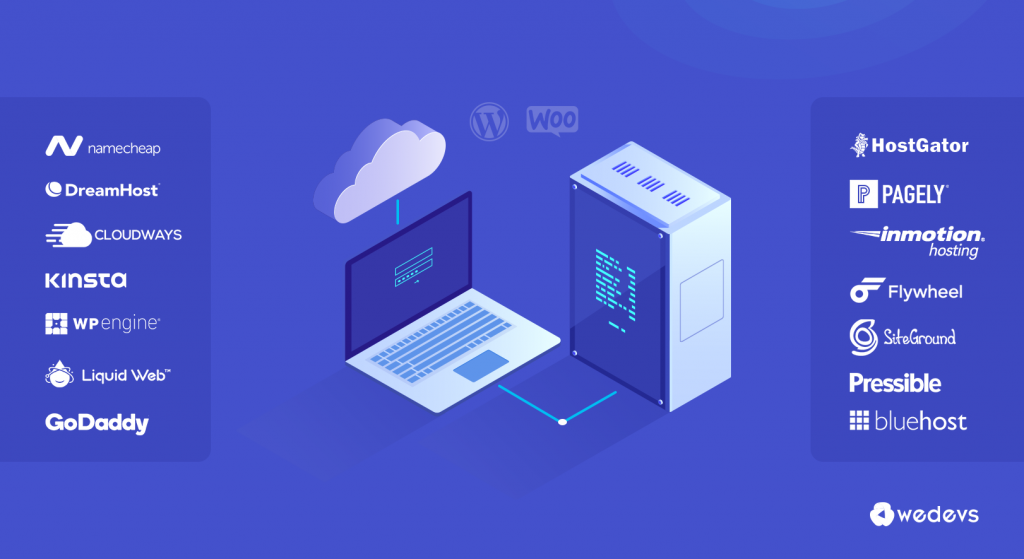
In 2025, cyber threats are more sophisticated than ever. From malware and phishing attacks to brute-force hacks and DDoS assaults, your website faces countless risks. The first line of defense? A secure web hosting provider.
If you’re serious about protecting your website, customer data, and brand reputation, this guide will walk you through what to look for when choosing a secure hosting provider.
🔒 1. SSL Certificates Must Be Standard
A Secure Sockets Layer (SSL) certificate encrypts the data transferred between your website and its visitors. It’s essential for protecting sensitive information like login credentials, personal data, and payment details.
✅ Look for:
- Free SSL with every plan (Let’s Encrypt or built-in)
- Auto-renewing certificates
- HTTPS enabled by default
Pro Tip: Google also considers HTTPS a ranking factor. So SSL helps both security and SEO.
🛡️ 2. Daily Backups and Easy Restoration
Imagine losing all your website data after a breach. Backups are your insurance policy.
✅ Look for:
- Daily or automatic backups
- One-click restore option
- Off-site storage for added protection
Recommended: SiteGround and A2 Hosting both offer free daily backups, even on entry-level plans.
🧼 3. Malware Scanning & Removal Tools
Hackers often inject malicious code without your knowledge. A good host should actively scan your site for vulnerabilities and help remove threats quickly.
✅ Look for:
- Real-time malware scanning
- Auto-removal of infected files
- Firewall protection
Top Pick: Bluehost and GreenGeeks provide integrated malware protection with alerts and cleanup tools.
🚧 4. DDoS Protection & Network Monitoring
Distributed Denial of Service (DDoS) attacks can flood your website with fake traffic and cause downtime. You need a provider that actively monitors and defends against these attacks.
✅ Look for:
- DDoS mitigation tools
- Proactive network monitoring
- Server load balancing
Cloudflare Integration is a bonus feature offered by providers like Hostinger and Namecheap, helping shield your site from traffic spikes and attacks.
🔐 5. Two-Factor Authentication (2FA) & Secure Access
A secure hosting panel is just as important as your website. Unauthorized access to your cPanel or dashboard can lead to full control over your files and databases.
✅ Look for:
- 2FA login support
- Secure FTP (SFTP) & SSH access
- Account activity logs
Did You Know? Many data breaches occur due to weak admin passwords — make sure your host enforces strong login policies.
🌐 6. Uptime Guarantee and Secure Infrastructure
If your hosting provider is down or compromised, so is your website. A secure host should guarantee strong uptime with a stable, well-maintained server environment.
✅ Look for:
- 99.9% uptime guarantee
- Redundant data centers
- RAID storage for data safety
Providers like Kinsta, SiteGround, and Cloudways offer both high uptime and enterprise-level infrastructure security.
✅ Checklist: Questions to Ask Before You Buy Hosting
- Does the host offer free SSL on all plans?
- Are daily backups included?
- What malware protection tools are in place?
- Is there DDoS protection or CDN integration?
- Can I enable two-factor authentication?
- What’s the uptime record and server redundancy?
🔚 Conclusion: Don’t Compromise on Security
Choosing a secure hosting provider isn’t just about avoiding cyberattacks — it’s about protecting your investment, your brand, and your users’ trust.
At Shop Online Twin, we regularly review hosting companies with a focus on security features, performance, and support. If you’re unsure where to start, check out our top hosting deals or read our detailed hosting reviews.
Stay safe. Stay online. Choose wisely.